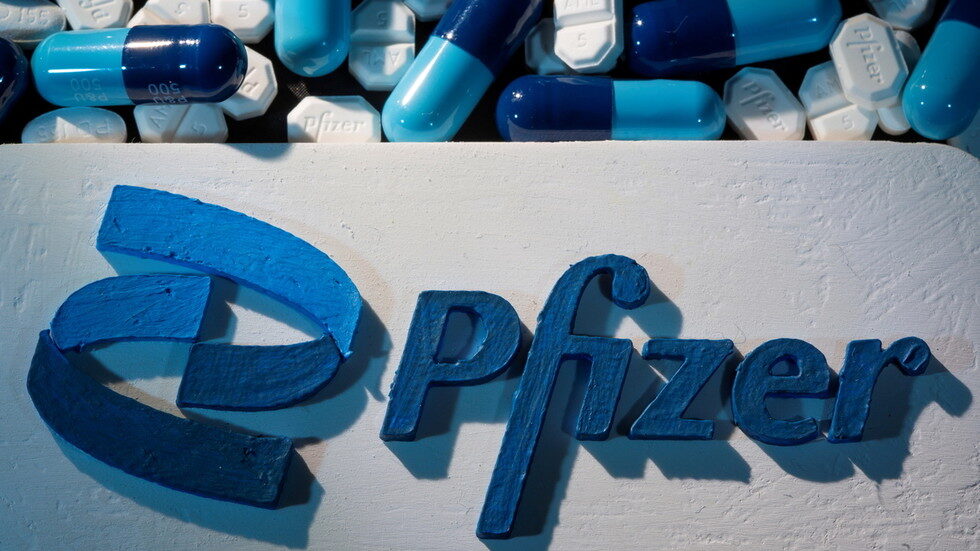
© REUTERS / Dado Ruvic
Drugmaker Pfizer is ramping up production of its yet-to-be-approved antiviral pill, after a small-scale study showed great promise in preventing serious cases of Covid-19. The company has not announced the price of its product.
The clinical trial,
reported by Pfizer on Friday, involved several hundred adult patients at high risk of hospitalization who were given the drug, branded Paxlovid. Of the 389 receiving it within three days of developing symptoms, only three were hospitalized and none died. In the control group, which received a placebo, 27 patients of 385 required hospitalization, with seven subsequent deaths. That translates into an 89% reduction in hospitalizations.
A similar positive effect was recorded in a parallel trial, in which treatment was started within five days, in order to test how big the window of opportunity is for starting treatment. There were six hospitalizations and no deaths among the 607 patients who received Paxlovid, compared to 41 hospitalizations and 10 subsequent deaths among the 612-strong control group.
"Today's news is a real game-changer in the global efforts to halt the devastation of this pandemic," Pfizer CEO Albert Bourla said.
Pfizer will "cease further enrollment into the study due to the overwhelming efficacy demonstrated in these results," the company said, citing a recommendation by a US Food and Drug Administration (FDA) monitoring committee.
It will now seek an emergency use authorization for the pill, it added.
A dose of Paxlovid contains a new chemical, currently designated 'PF-07321332', and a ritonavir, an anti-HIV medication which helps the main component to remain active for a longer time, according to Pfizer.
The pharma giant is racing against competitor Merck, which likewise seeks authorization for its oral anti-Covid-19 treatment, based on the compound molnupiravir. The UK has already given it the green light, while the FDA is set to evaluate it after Thanksgiving. Merck called its product "game-changing," too.
Pfizer appears to be quite confident in finding a large market for its medicine, planning to manufacture over 180,000 packs by the end of the year and ramp up production to at least 21 million packs in the first half of 2022. Merck aims to produce 10 million treatment courses this year.
The price tag for Paxlovid was not disclosed, with Pfizer stating only that "high and upper-middle income countries will pay more than lower income countries," and promising to "invest up to approximately $1 billion to support [its] manufacturing and distribution" in less-fortunate nations.
The two competing pills have different mechanisms for quashing the virus. Paxlovid inhibits an enzyme that it needs during its copying process, similar to how certain drugs suppressing HIV and hepatitis C work. Molnupiravir attacks the virus by
inducing errors during its replication that are missed by its regular genome 'proofreading' mechanisms.
Some scientists are concerned that Merck's product may negatively affect human genes.

Reader Comments